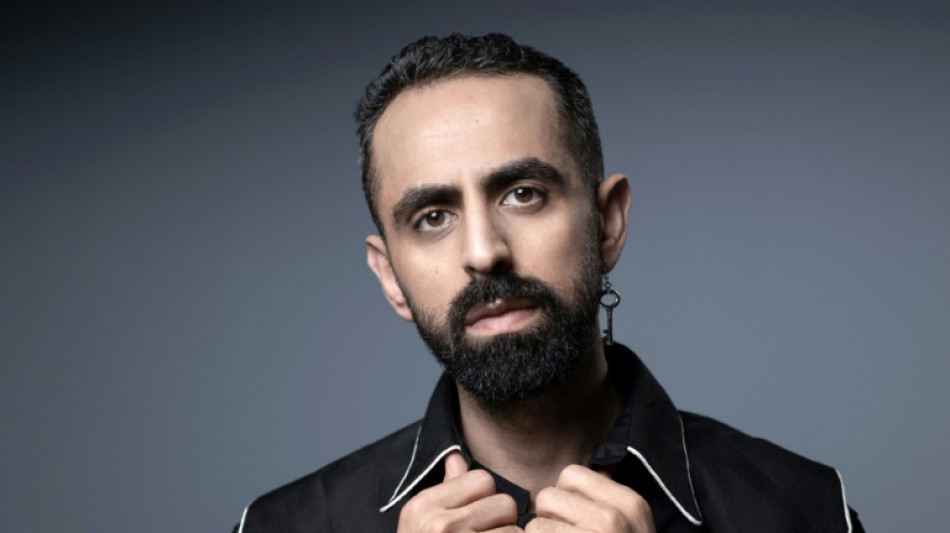
RIO
0.5500

Jerusalem native Bashar Murad was determined to compete in the Eurovision Song Contest, but with no option to represent Palestinians, he opted to try his luck singing for Iceland.
"I'm an artist, I make pop music, and Eurovision is like the Olympics of pop music", the up-and-coming pop singer told AFP in a recent telephone interview.
Unlike Israel, a member of the European Broadcasting Union (EBU) that oversees Eurovision and therefore can participate in the competition, Palestinians are not granted a spot.
This year's contest is taking part in the shadow of the war raging in Gaza, and has prompted thousands to protest in Malmo, Sweden, where Israel's contestant Eden Golan qualified for Saturday's big finale.
Murad too sparked controversy earlier this year when many saw a political, not artistic endeavour in his decision to compete in Iceland.
"They didn't even look at the song. They just looked at me and at the fact that I'm Palestinian," he said.
He said he had received death threats, while an actor on an Israeli satirical talk show mocked him, as others took to social media to criticise him.
"If Palestine was free, I wouldn't need to go to Iceland to compete," said Murad.
The heightened tensions caused by the war in Gaza made his candidacy particularly charged, but Murad says his Eurovision dream began long before.
- 'Wild West' to 'Vestrith villt' -
Murad said he submitted his song to the Icelandic committee in August 2023, "and then two months later, October 7th happens, and the world goes mad".
He did not win the qualifications but he made it to the last round of Iceland's pre-Eurovision song contest and was expected to win with his song "Wild West".
Against expectations, he lost to Icelandic artist Hera Bjork and her song "Scared of Heights" by just 3,000 votes out of the 200,000 cast.
In the end Bjork failed to make it through the semi-finals, leaving Iceland without a representative at the Eurovision finals on Saturday.
For Murad, whose father founded the renowned Palestinian band Sabreen, the choice of Iceland as a hoped-for conduit to Eurovision, wasn't completely random.
He already knew the Icelandic band Hatari, an industrial techno outfit that drew attention during the 2019 Eurovision finals in Tel Aviv, when band members waived a Palestinian banner.
Through their drummer and producer Einar Stefansson, Murad learned he did not have to be Icelandic to represent the island nation.
He would however have to sing in Icelandic in the semifinals.
Murad and Stefansson co-wrote his entry song, including the Icelandic version of it, "Vestrith villt", for the semi-finals.
Akin to Beyonce's "Texas Hold'em", "Wild West" and the album it is found in fuses American folk, country and pop music, part of a wider trend of pop music artists "going country".
- 'Obstacles' -
Murad, who is currently doing an artist residency in Paris, said he is keenly aware of the expectations that come from his own people, stressing he represents only "one Palestinian experience" of many.
In a campy, satirical music video for his song "Antennes", Murad addresses these themes.
Donning a mariachi hat and lipstick under his large moustache, he looks around uneasily as a pretend audience asks him in Arabic why he doesn't dress according to "our customs".
Murad said he hoped his experience would "highlight how many obstacles we have to go through as Palestinian artists".
"As a Palestinian, I don't have the luxury to choose" whether or not to be political, he said, arguing that the audience's perception of him based on his background already colours everything he does.
"I wish I could sing about more universal themes than the occupation" of the West Bank since 1967, he added, although that specific theme was absent from his Eurovision song.
"But this is the reality I am born into. It's the lens through which I see the world."
T.Jamil--DT